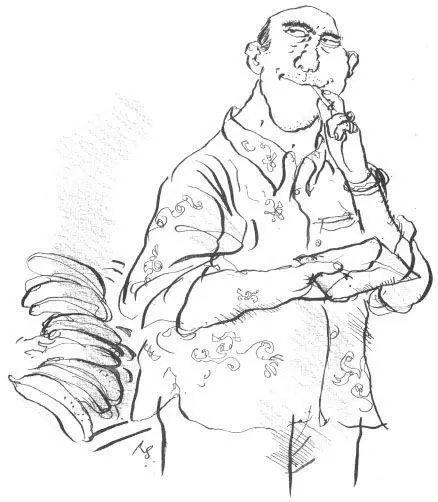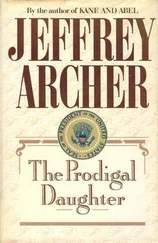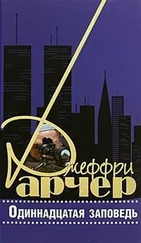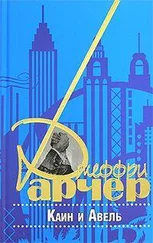Джеффри Арчер - Cat O'Nine Tales
Здесь есть возможность читать онлайн «Джеффри Арчер - Cat O'Nine Tales» весь текст электронной книги совершенно бесплатно (целиком полную версию без сокращений). В некоторых случаях можно слушать аудио, скачать через торрент в формате fb2 и присутствует краткое содержание. Город: London, Год выпуска: 2006, ISBN: 2006, Издательство: Macmillan, Жанр: Современная проза, short_story, на английском языке. Описание произведения, (предисловие) а так же отзывы посетителей доступны на портале библиотеки ЛибКат.
- Название:Cat O'Nine Tales
- Автор:
- Издательство:Macmillan
- Жанр:
- Год:2006
- Город:London
- ISBN:978-0-230-01493-0
- Рейтинг книги:4 / 5. Голосов: 1
-
Избранное:Добавить в избранное
- Отзывы:
-
Ваша оценка:
- 80
- 1
- 2
- 3
- 4
- 5
Cat O'Nine Tales: краткое содержание, описание и аннотация
Предлагаем к чтению аннотацию, описание, краткое содержание или предисловие (зависит от того, что написал сам автор книги «Cat O'Nine Tales»). Если вы не нашли необходимую информацию о книге — напишите в комментариях, мы постараемся отыскать её.
Cat O'Nine Tales — читать онлайн бесплатно полную книгу (весь текст) целиком
Ниже представлен текст книги, разбитый по страницам. Система сохранения места последней прочитанной страницы, позволяет с удобством читать онлайн бесплатно книгу «Cat O'Nine Tales», без необходимости каждый раз заново искать на чём Вы остановились. Поставьте закладку, и сможете в любой момент перейти на страницу, на которой закончили чтение.
Интервал:
Закладка:
One Thursday afternoon, just after Doug had cleared customs in Dover, he drove into the nearest petrol station to refuel before continuing his journey north to Sleaford. An Audi followed him onto the forecourt, and the driver began to curse about how long he was going to have to wait before the massive pantechnicon would be filled up. To his surprise, the lorry driver only took a couple of minutes before he replaced the nozzle in its holder. As Doug drove out onto the road, the car behind moved up to take his place. When Mr Cainen saw the name on the side of the lorry, his curiosity was aroused. He checked the pump, to find that Doug had only spent £33. He stared at the massive eighteen-wheeler as it trundled off down the highway, aware that with that amount of petrol Doug could only hope to cover a few more miles before he would have to fill up again.
It took Mr Cainen only a few minutes to catch up with Doug’s truck. He then followed the lorry at a safe distance for the next twenty miles before Doug pulled into another petrol station. Once Doug was back on the road a few minutes later, Mr Cainen checked the pump — £34 — only enough to cover another twenty miles. As Doug continued on his journey to Sleaford, the officer returned to Dover with a smile on his face.
When Doug was driving back from Marseilles the following week, he showed no concern when Mr Cainen asked him to pull over and park his lorry in the customs shed. He knew that every crate on board was, as the manifest stated, full of bananas. However, the customs officer didn’t ask Doug to unlock the back door of the truck. He simply walked around the outside of the vehicle clutching a spanner as if it were a tuning fork while he tapped the massive fuel tanks. The officer was not surprised that the eighth tank rang out with a completely different timbre to the other seven. Doug sat around for hours while customs mechanics removed all eight fuel tanks from both sides of the lorry. Only one was half full of diesel, while the other seven contained over £100,000 worth of cigarettes.
On this occasion the judge was less lenient, and Doug was sent down for six years, even after his barrister pleaded that a second child was on the way.
Sally was horrified to discover that Doug had broken his word, and sceptical when he promised her never, ever, again. The moment her husband was locked up, she rented out the second vehicle and returned to her job as an estate agent.
A year later Sally was able to declare an increased income of just over £3,000, on top of her earnings as an estate agent.
Sally’s accountant advised her to buy the field next door to the cottage, where the lorries were always parked at night, as she could claim it against tax. ‘A carpark,’ he explained, ‘would be a legitimate business expense.’
As Doug had just begun a six-year sentence and was back to earning £12.50 a week as the prison librarian, he was hardly in a position to offer an opinion. However, even he was impressed when, the following year, Sally declared an income of £37,000, which included her added sales bonuses. This time, the accountant advised her to purchase a third lorry.
Doug was eventually released from prison having only served half his sentence (three years). Sally was parked outside the prison gates in her Vauxhall, waiting to drive her husband home. His nine-year-old daughter, Kelly, was strapped into the back, next to her three-year-old sister Sam. Sally had not allowed either of the children to visit their father in prison, so when Doug took the little girl in his arms for the first time, Sam burst into tears. Sally explained to her that the strange man was her father.
Over a welcome breakfast of bacon and eggs, Sally was able to report that she had been advised by her accountant to form a limited company. Haslett Haulage had declared a profit of £21,600 in its first year, and she had added two more lorries to their growing fleet. Sally told her husband that she was thinking of giving up her job at the estate agent’s to become full-time chair of the new company.
‘Chair?’ said Doug. ‘What’s that?’
Doug was only too pleased to leave Sally to run the company, as long as he was allowed to take his place behind the wheel as one of her drivers. This state of affairs would have continued quite happily, if Doug had not once again been approached by the man from Marseilles — who never seemed to end up in jail — with what he confidently assured him was a fool-proof plan with no risks attached and, more important, this time his wife need never find out.
Doug resisted the Frenchman’s advances for several months, but after losing a rather large sum in a poker game, finally succumbed. Just one trip, he promised himself. The man from Marseilles smiled, as he handed over an envelope containing £12,500 in cash.
Under Sally’s chairmanship, the Haslett Haulage Company continued to grow, in both reputation and below the bottom line. Meanwhile, Doug once again became used to having cash in hand; money which did not rely on a balance sheet, and was not subject to a tax return.

Someone else was continuing to keep a close eye on the Haslett Haulage Company, and Doug in particular. Regular as clockwork, Doug could be seen driving his lorry through the Dover terminal, with a full load of sprouts and peas, destined for Marseilles. But Mark Cainen, now an anti-smuggling officer working as part of the Law Enforcement Unit, never once saw Doug make the return journey. This worried him.
The officer checked his records, to find that Haslett Haulage was now running nine lorries a week to different parts of Europe. Their chairman, Sally Haslett, had a spotless reputation — not unlike her vehicles — with everyone she dealt with, from customs to customers. But Mr Cainen was still curious to find out why Doug was no longer driving back through his port. He took it personally.
A few discreet enquiries revealed that Doug could still be seen in Marseilles unloading his sprouts and peas, and later loading up with crates of bananas. However, there was one slight variation. He was now driving back via Newhaven, which Cainen estimated must have added at least a couple of hours to Doug’s journey.
All customs officers have the option of serving one month a year at another port of entry, to further their promotion prospects. The previous year Mr Cainen had selected Heathrow airport; that year he opted for a month in Newhaven.
Officer Cainen waited patiently for Doug’s lorry to appear on the dockside, but it wasn’t until the end of his second week that he spotted his old adversary waiting in line to disembark from an Olsen’s ferry. The moment Doug’s lorry drove onto the dock, Mr Cainen disappeared upstairs into the staffroom and poured himself a cup of coffee. He walked across to the window and watched Doug’s vehicle came to a halt at the front of the line. He was waved quickly through by the two officers on duty. Mr Cainen made no attempt to intervene as Doug drove out onto the road to continue his journey back to Sleaford. He had to wait another ten days before Doug’s lorry reappeared, and this time he noted that only one thing hadn’t changed. Mr Cainen didn’t think it was a coincidence.
When Doug returned via Newhaven five days later, the same two officers gave his vehicle no more than a cursory glance, before waving him through. The officer now knew that it wasn’t a coincidence. Mr Cainen reported his observations to his boss in Newhaven and, as his month was up, made his way back to Dover.
Doug completed three more journeys from Marseilles via Newhaven before the two customs officers were arrested. When Doug saw five officers heading towards his truck, he knew that his new impossible-to-be-caught system had been sussed.
Читать дальшеИнтервал:
Закладка:
Похожие книги на «Cat O'Nine Tales»
Представляем Вашему вниманию похожие книги на «Cat O'Nine Tales» списком для выбора. Мы отобрали схожую по названию и смыслу литературу в надежде предоставить читателям больше вариантов отыскать новые, интересные, ещё непрочитанные произведения.
Обсуждение, отзывы о книге «Cat O'Nine Tales» и просто собственные мнения читателей. Оставьте ваши комментарии, напишите, что Вы думаете о произведении, его смысле или главных героях. Укажите что конкретно понравилось, а что нет, и почему Вы так считаете.












